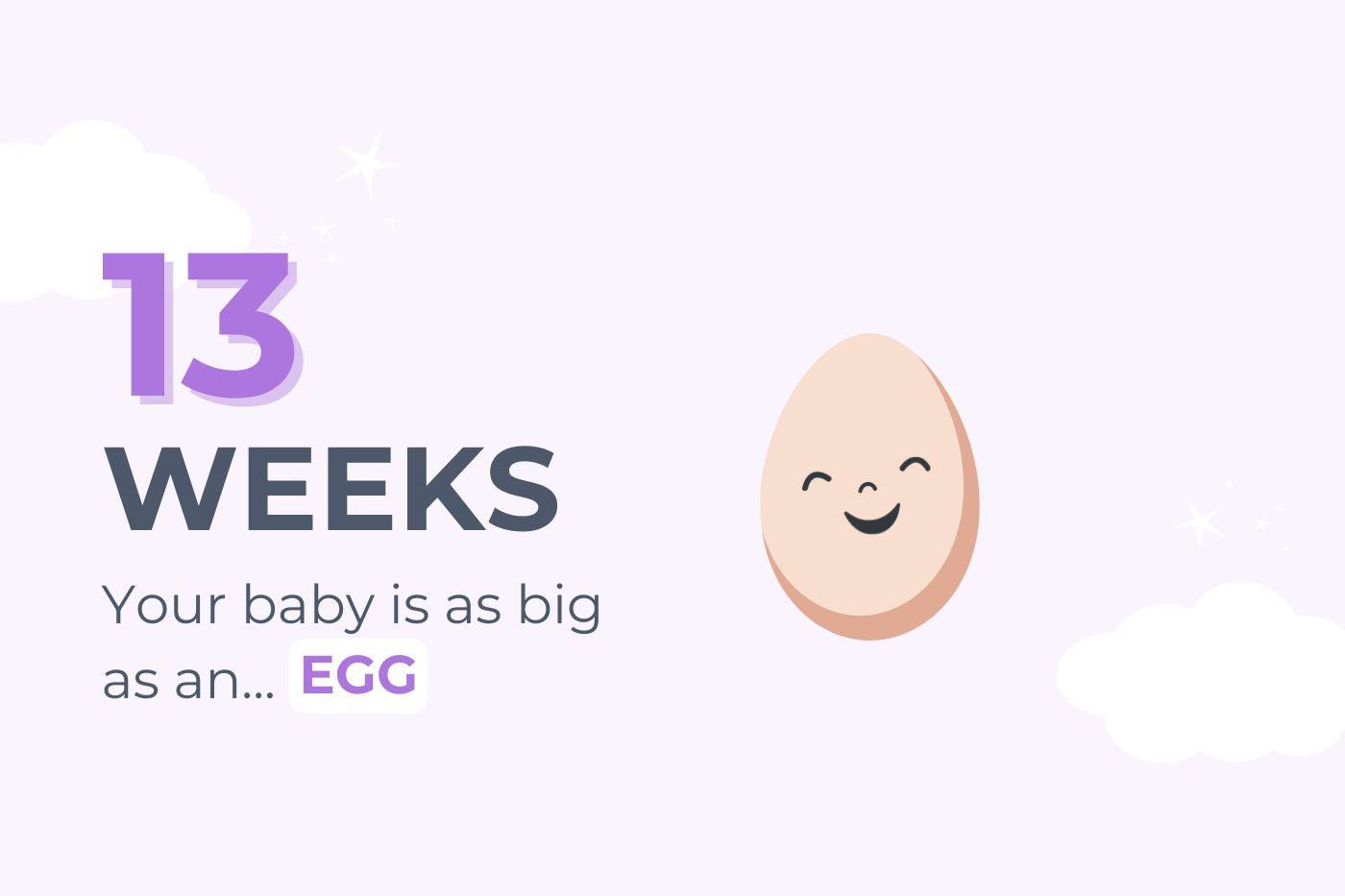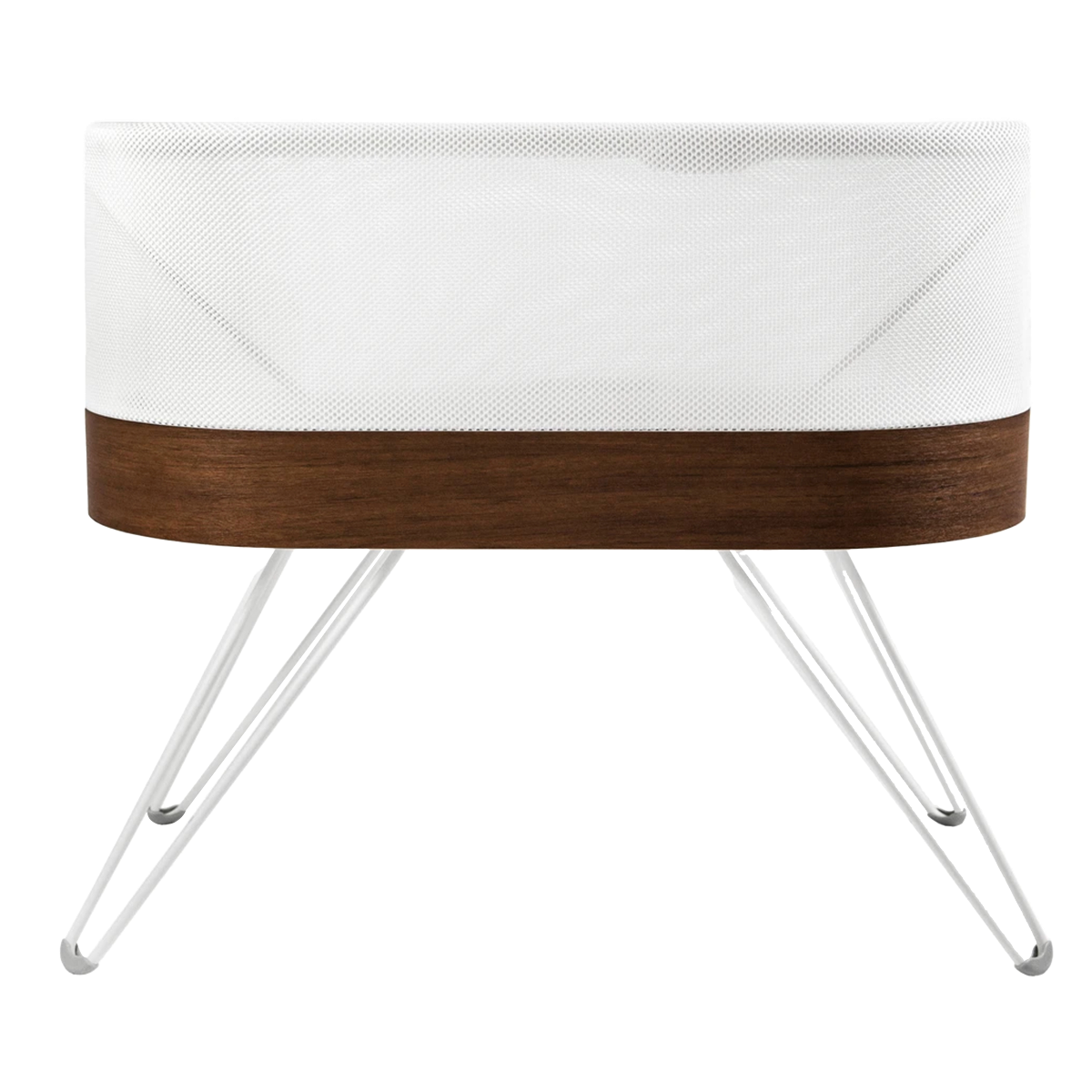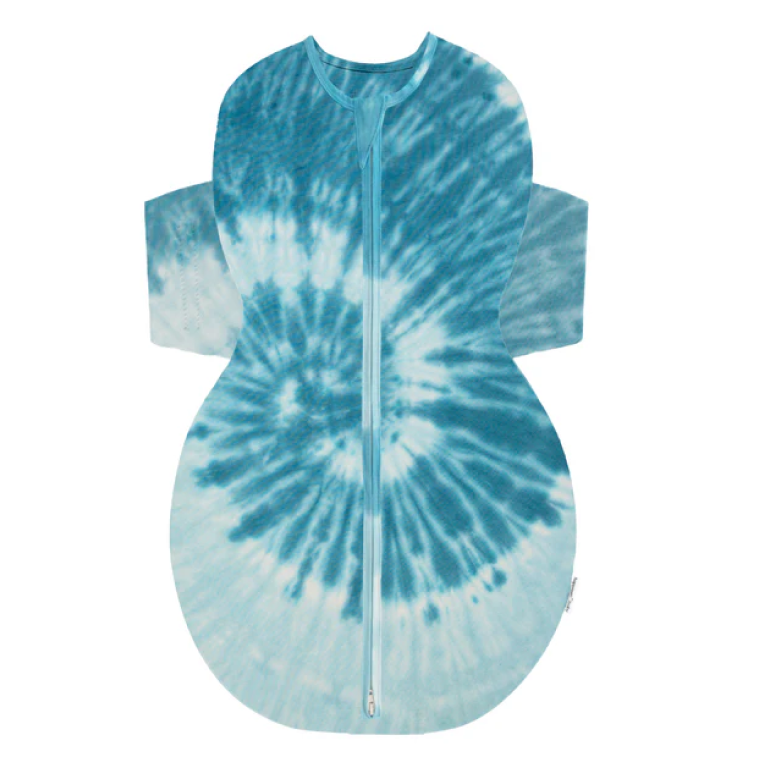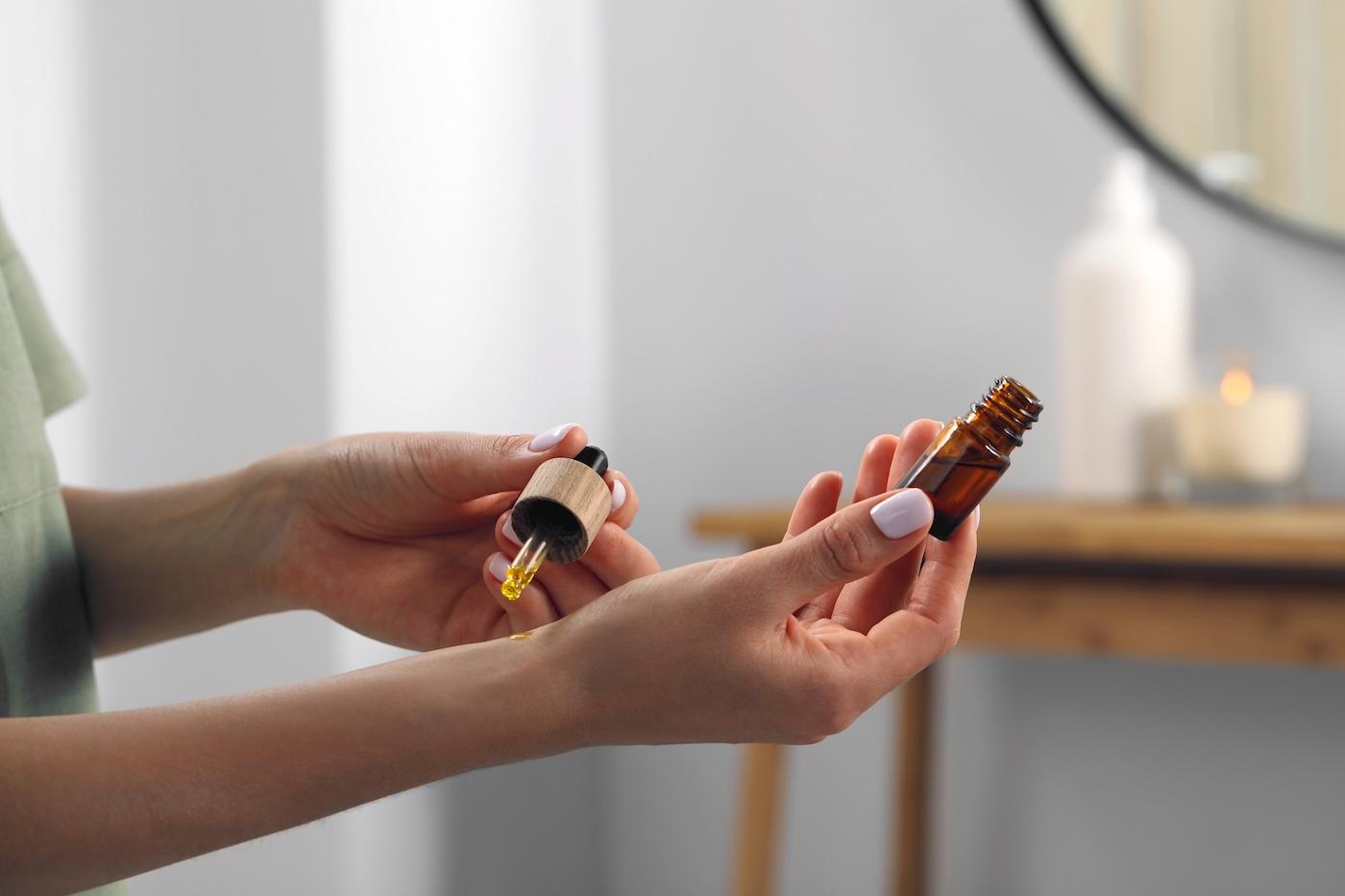PREGNANCY
13 Weeks Pregnant: Are You ‘Showing’ Yet?
Congratulations for making it through the 1st trimester!

Written by
Happiest Baby Staff

13 Weeks Pregnant: Baby Update
Your baby’s a bit top-heavy right now: Their head is enormous compared to the rest of their body. And there’s good reason! Inside their noggin, the frontal lobes of the cerebral cortex are developing. But your little one’s body is beginning to grow faster and will soon catch up.
You may have noticed tiny little hiccups coming from inside your belly, a habit that’ll peak in the 3rd trimester and continue ‘til birth. Your baby’s bones, which have been getting stronger these past few weeks, now contain bone marrow which will produce illness-fighting white blood cells. Their pituitary gland and thyroid glands are already churning out hormones.
To train their lungs, your baby may inhale and exhale amniotic fluid for the first time. But they won’t take their first breath of air until they’re born. The umbilical cord will continue to deliver oxygen for the remaining weeks in the womb.
And remember that tail your lovebug was sporting earlier in the pregnancy? It’s gone now, making your bub look a little less amphibian and a little more human (phew!).
13 Weeks Pregnant: What to Expect
Congratulations for making it through the 1st trimester! By now your nausea should be fading. You might also be feeling a sense of relief, as week over week, your risk of miscarrying continues to drop. (Still feeling woozy? Try these morning sickness remedies.)
In addition to feeling less sick, you should also see your energy levels rebound and mood swings fade during this trimester. Many folks describe the 2nd trimester as the easiest one. If that’s how you feel, enjoy this time!
Most pregnant people start “showing” over the next month or so. As your uterus expands, it moves out of your pelvis and becomes more noticeable to you—and others. At this point, it’s high enough that your healthcare provider should be able to feel it during your prenatal appointments.
Even if you’re not sporting a full baby bump yet, your jeans are likely becoming a tad snug. It might be a good time to invest in some maternity clothes or ask your tailor to add stretchy side panels to a few pairs of pants. When shopping, remember that your body will change weekly— sometimes, it may feel like it’s different every day! You’ll get the most bang for your buck by picking clothes that are designed to stretch, expand, and last through month 9—but there are no guarantees. What you find flattering and comfortable now may not be in a month or two.
Soon, you may start noticing an increase in vaginal discharge. This flow of fluid is how your vagina keeps itself clean. Normal discharge, which your cervix excretes, helps your body prevent bacterial and fungal infections. Called leukorrhea, this discharge is usually thin in texture, white and relatively odorless. If your discharge is yellow, green or chunky, has a strange odor, or is accompanied by itching and redness, check in with your healthcare provider so they can test for infection.
13 Weeks Pregnant To-Do List
- Research childbirth education classes in your area: Depending on the class you choose, you may be in for five to 12 weeks of training. Some of the most popular birthing classes include The Bradley Method, Hypnobirthing, and Lamaze— and they can book up fast. Another wise idea? Take classes that cover newborn care and/or breastfeeding. The birth is a big dramatic day to prepare for, but the newborn phase is much longer. Going in with some training—like learning the 5 S’s for soothing babies—can build your confidence and lower your stress.
- Book a babymoon: Vacations are about to change forever! You may want to plan one last baby-free getaway. The 2nd trimester is the best time to take a trip before your baby arrives. You’re free of the nausea of early pregnancy, it’s still safe to fly, and your energy levels are high. For more tips, check out the CDC’s guide to traveling while pregnant—or if keeping close to home is more your style, plan a babymoon staycation!
- Discuss prenatal diagnostic tests with your doctor: If prior noninvasive pregnancy tests indicate a high risk of birth defects, you are older than 35, or you have a history of genetic disease, you may be considering an amniocentesis. This test is generally given from 15 weeks to 20 weeks gestation. An “amnio” can detect chromosomal abnormalities such as Down syndrome as well as neural tube defects and genetic diseases like Tay-Sachs and cystic fibrosis—all with an accuracy of about 99%. It can also tell you the sex of your baby. It does come with a risk of miscarriage, though, along with the typical stress of waiting for results. If you’re under the age of 35, your insurance may not cover this test. Here’s everything you need to know about prenatal genetic testing.
- Become an early-bird diner: As your uterus expands, it’s infringing on your other organs’ personal space. Your stomach and intestines are probably feeling a bit squished right now. And the effects of progesterone, which relaxes the valve at the top of your stomach, can lead to heartburn (ouch!). This hormone also affects the muscles throughout your digestive tract, causing a general slowdown in the time it takes your body to process food. Eating large meals early gives your body more time to digest and should reduce stomach discomfort come bedtime. (Check out more ways to get heartburn relief during pregnancy.)
Pregnancy Fun Fact: Chocolate Has Health Benefits
Expecting parents are told to reduce their caffeine intake, and chocolate contains caffeine, so it’s often lumped in with coffee, tea, and soda as pregnancy no-nos. But there’s good news for cocoa-craving parents-to-be: As long as the chocolate you are eating isn’t super high in sugar, there’s no reason to abstain. Research suggests that not only is chocolate totally fine during pregnancy, but it might also boast small health benefits, like improved placental function. Dark chocolate contains antioxidants similar to the ones you are missing out on in red wine. How’s that for sweet news?
< 12 Weeks Pregnant | 14 Weeks Pregnant >
Disclaimer: The information on our site is NOT medical advice for any specific person or condition. It is only meant as general information. If you have any medical questions and concerns about your child or yourself, please contact your health provider.
SHARE THIS ARTICLE
MOST LOVED
Sleepytime Sidekicks












